Dates have been a staple food in many cultures for centuries, prized for their natural sweetness and numerous health benefits. With several varieties available in the market, one of the most popular and sought-after types is the Medjool date. Often hailed as the king of dates, Medjool dates are renowned for their large size, rich flavor, and unique texture. But how do they compare to regular dates, and is the premium price tag justified? Let’s delve into the world of dates and explore the differences between Medjool dates and regular dates to help you make an informed choice when selecting your next sweet snack or recipe ingredient.
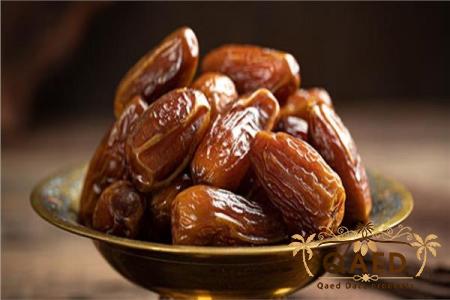
.
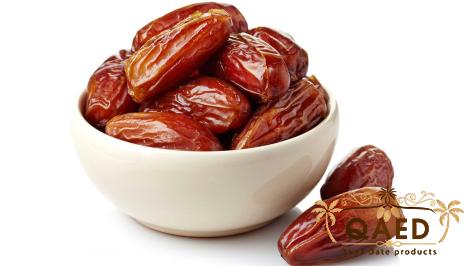 **Appearance and Size** One of the most noticeable differences between Medjool dates and regular dates is their appearance and size. Medjool dates are significantly larger than regular dates, with a plump and luscious appearance. The rich amber hue of Medjool dates is a visual indicator of their high sugar content and ripeness, making them an attractive option for snacking and dessert recipes. In contrast, regular dates are often smaller and darker in color, with a more wrinkled exterior. **Texture and Flavor** The texture of Medjool dates sets them apart from regular dates. Medjool dates are known for their soft, chewy texture and melt-in-your-mouth consistency. When bitten into, Medjool dates offer a creamy and luscious experience, making them a delightful treat on their own or in various recipes. In comparison, regular dates can be drier and slightly chewier, with a firmer texture that some may find less appealing. When it comes to flavor, Medjool dates are prized for their rich, caramel-like sweetness with hints of honey and butterscotch notes. The flavor profile of Medjool dates is complex and indulgent, making them a popular choice for desserts, energy bars, and sweet snacks. Regular dates, on the other hand, have a milder and less intense sweetness, making them suitable for a wide range of culinary applications. **Nutritional Value** Both Medjool dates and regular dates are nutrient-dense fruits that offer a range of health benefits. Dates are an excellent source of natural sugars, fiber, vitamins, and minerals, making them a healthy alternative to refined sugars and processed snacks. Medjool dates are slightly higher in calories and carbohydrates compared to regular dates due to their larger size and higher sugar content. However, they also contain more fiber, potassium, magnesium, and antioxidants, making them a nutrient-rich option for boosting your health. Regular dates, while smaller in size, still pack a nutritious punch with essential nutrients like fiber, vitamin B6, and iron. **Versatility in Cooking** Both Medjool dates and regular dates are versatile ingredients that can be used in a wide range of culinary applications. Medjool dates are often preferred in baking and dessert recipes that require a pronounced sweetness and creamy texture. Their large size makes them ideal for stuffing with nuts, cheese, or other fillings for a gourmet appetizer or snack.
**Appearance and Size** One of the most noticeable differences between Medjool dates and regular dates is their appearance and size. Medjool dates are significantly larger than regular dates, with a plump and luscious appearance. The rich amber hue of Medjool dates is a visual indicator of their high sugar content and ripeness, making them an attractive option for snacking and dessert recipes. In contrast, regular dates are often smaller and darker in color, with a more wrinkled exterior. **Texture and Flavor** The texture of Medjool dates sets them apart from regular dates. Medjool dates are known for their soft, chewy texture and melt-in-your-mouth consistency. When bitten into, Medjool dates offer a creamy and luscious experience, making them a delightful treat on their own or in various recipes. In comparison, regular dates can be drier and slightly chewier, with a firmer texture that some may find less appealing. When it comes to flavor, Medjool dates are prized for their rich, caramel-like sweetness with hints of honey and butterscotch notes. The flavor profile of Medjool dates is complex and indulgent, making them a popular choice for desserts, energy bars, and sweet snacks. Regular dates, on the other hand, have a milder and less intense sweetness, making them suitable for a wide range of culinary applications. **Nutritional Value** Both Medjool dates and regular dates are nutrient-dense fruits that offer a range of health benefits. Dates are an excellent source of natural sugars, fiber, vitamins, and minerals, making them a healthy alternative to refined sugars and processed snacks. Medjool dates are slightly higher in calories and carbohydrates compared to regular dates due to their larger size and higher sugar content. However, they also contain more fiber, potassium, magnesium, and antioxidants, making them a nutrient-rich option for boosting your health. Regular dates, while smaller in size, still pack a nutritious punch with essential nutrients like fiber, vitamin B6, and iron. **Versatility in Cooking** Both Medjool dates and regular dates are versatile ingredients that can be used in a wide range of culinary applications. Medjool dates are often preferred in baking and dessert recipes that require a pronounced sweetness and creamy texture. Their large size makes them ideal for stuffing with nuts, cheese, or other fillings for a gourmet appetizer or snack.
..
 Regular dates are commonly used in Middle Eastern and Mediterranean cuisine, where they are added to savory dishes like tagines, stews, salads, and couscous. Their natural sweetness balances the savory flavors of these dishes, creating a harmonious taste profile. **Price and Availability** One factor to consider when choosing between Medjool dates and regular dates is the price and availability. Medjool dates are considered a premium variety and are often priced higher than regular dates due to their larger size, superior flavor, and unique texture. While the cost of Medjool dates may be higher, many consumers find the investment worthwhile for the quality and taste they provide. Regular dates, on the other hand, are more widely available and accessible at a lower cost, making them a budget-friendly option for everyday use. Their smaller size and less intense sweetness make them a versatile ingredient for a variety of recipes without breaking the bank. **Conclusion** In the world of dates, both Medjool dates and regular dates have their own unique qualities and benefits. While Medjool dates stand out for their large size, rich flavor, and creamy texture, regular dates offer a more affordable and versatile option for everyday cooking and snacking. Ultimately, the choice between Medjool dates and regular dates comes down to personal preference, budget, and culinary needs. Whether you opt for the indulgent sweetness of Medjool dates in your desserts or the subtle flavor of regular dates in your savory dishes, both varieties offer a delicious and nutritious addition to your diet. Next time you reach for a date, consider the differences between Medjool dates and regular dates to enhance your culinary experience and savor the natural goodness of this ancient fruit. **Health Benefits** In addition to their delicious taste and versatility in cooking, both Medjool dates and regular dates offer a range of health benefits that make them a valuable addition to a balanced diet. Dates are rich in fiber, which promotes digestive health, regulates blood sugar levels, and helps you feel full and satisfied. The fiber content in dates can also aid in weight management and reduce the risk of chronic diseases such as heart disease and diabetes. Dates are a powerhouse of energy, thanks to their natural sugars and carbohydrates. When you need a quick energy boost, reaching for a few dates can provide you with a steady source of vitality without the crash that comes with refined sugars and processed snacks.
Regular dates are commonly used in Middle Eastern and Mediterranean cuisine, where they are added to savory dishes like tagines, stews, salads, and couscous. Their natural sweetness balances the savory flavors of these dishes, creating a harmonious taste profile. **Price and Availability** One factor to consider when choosing between Medjool dates and regular dates is the price and availability. Medjool dates are considered a premium variety and are often priced higher than regular dates due to their larger size, superior flavor, and unique texture. While the cost of Medjool dates may be higher, many consumers find the investment worthwhile for the quality and taste they provide. Regular dates, on the other hand, are more widely available and accessible at a lower cost, making them a budget-friendly option for everyday use. Their smaller size and less intense sweetness make them a versatile ingredient for a variety of recipes without breaking the bank. **Conclusion** In the world of dates, both Medjool dates and regular dates have their own unique qualities and benefits. While Medjool dates stand out for their large size, rich flavor, and creamy texture, regular dates offer a more affordable and versatile option for everyday cooking and snacking. Ultimately, the choice between Medjool dates and regular dates comes down to personal preference, budget, and culinary needs. Whether you opt for the indulgent sweetness of Medjool dates in your desserts or the subtle flavor of regular dates in your savory dishes, both varieties offer a delicious and nutritious addition to your diet. Next time you reach for a date, consider the differences between Medjool dates and regular dates to enhance your culinary experience and savor the natural goodness of this ancient fruit. **Health Benefits** In addition to their delicious taste and versatility in cooking, both Medjool dates and regular dates offer a range of health benefits that make them a valuable addition to a balanced diet. Dates are rich in fiber, which promotes digestive health, regulates blood sugar levels, and helps you feel full and satisfied. The fiber content in dates can also aid in weight management and reduce the risk of chronic diseases such as heart disease and diabetes. Dates are a powerhouse of energy, thanks to their natural sugars and carbohydrates. When you need a quick energy boost, reaching for a few dates can provide you with a steady source of vitality without the crash that comes with refined sugars and processed snacks.
…
 The potassium content in dates helps regulate blood pressure, maintain proper muscle function, and support overall cardiovascular health. Regular consumption of dates, whether Medjool or regular varieties, can contribute to improved bone health, thanks to their calcium and phosphorus content. These essential minerals play a vital role in bone formation, strength, and density, making dates a bone-friendly snack for individuals of all ages. **Incorporating Dates into Your Diet** Both Medjool dates and regular dates can be incorporated into a wide range of dishes to enhance their flavor, sweetness, and nutritional value. Here are some creative ways to enjoy dates in your daily meals: – Snack on a couple of Medjool dates with a handful of nuts for a quick and satisfying energy boost. – Blend dates into smoothies and shakes for a natural sweetener and added fiber. – Stuff Medjool dates with almond butter or cream cheese for a decadent and nutritious snack. – Add chopped dates to salads, grain bowls, and yogurt parfaits for a touch of natural sweetness and texture. – Use dates in baking recipes like energy balls, granola bars, cookies, and cakes to replace refined sugars and add a wholesome sweetness. Experiment with different ways to incorporate dates into your meals and snacks to experience the full range of flavors and benefits they have to offer. Whether you prefer the indulgence of Medjool dates or the simplicity of regular dates, there are countless ways to enjoy this versatile fruit in your everyday cooking. **Final Thoughts** When it comes to choosing between Medjool dates and regular dates, both varieties offer their own unique characteristics and benefits. While Medjool dates are often seen as a premium option with their large size and rich flavor, regular dates provide a more accessible and budget-friendly alternative for everyday use. Whichever type of date you choose, incorporating this nutrient-dense fruit into your diet can offer a range of health benefits, from improved digestion to enhanced energy levels and bone health. Dates are a delicious and versatile ingredient that can elevate your culinary creations and satisfy your sweet tooth in a natural and wholesome way. Next time you’re at the grocery store or farmers’ market, consider picking up a pack of Medjool dates or regular dates to explore their flavors, textures, and culinary possibilities. Whether enjoyed on their own as a snack or used in your favorite recipes, dates are sure to add a touch of sweetness and nourishment to your meals while supporting your overall health and well-being.
The potassium content in dates helps regulate blood pressure, maintain proper muscle function, and support overall cardiovascular health. Regular consumption of dates, whether Medjool or regular varieties, can contribute to improved bone health, thanks to their calcium and phosphorus content. These essential minerals play a vital role in bone formation, strength, and density, making dates a bone-friendly snack for individuals of all ages. **Incorporating Dates into Your Diet** Both Medjool dates and regular dates can be incorporated into a wide range of dishes to enhance their flavor, sweetness, and nutritional value. Here are some creative ways to enjoy dates in your daily meals: – Snack on a couple of Medjool dates with a handful of nuts for a quick and satisfying energy boost. – Blend dates into smoothies and shakes for a natural sweetener and added fiber. – Stuff Medjool dates with almond butter or cream cheese for a decadent and nutritious snack. – Add chopped dates to salads, grain bowls, and yogurt parfaits for a touch of natural sweetness and texture. – Use dates in baking recipes like energy balls, granola bars, cookies, and cakes to replace refined sugars and add a wholesome sweetness. Experiment with different ways to incorporate dates into your meals and snacks to experience the full range of flavors and benefits they have to offer. Whether you prefer the indulgence of Medjool dates or the simplicity of regular dates, there are countless ways to enjoy this versatile fruit in your everyday cooking. **Final Thoughts** When it comes to choosing between Medjool dates and regular dates, both varieties offer their own unique characteristics and benefits. While Medjool dates are often seen as a premium option with their large size and rich flavor, regular dates provide a more accessible and budget-friendly alternative for everyday use. Whichever type of date you choose, incorporating this nutrient-dense fruit into your diet can offer a range of health benefits, from improved digestion to enhanced energy levels and bone health. Dates are a delicious and versatile ingredient that can elevate your culinary creations and satisfy your sweet tooth in a natural and wholesome way. Next time you’re at the grocery store or farmers’ market, consider picking up a pack of Medjool dates or regular dates to explore their flavors, textures, and culinary possibilities. Whether enjoyed on their own as a snack or used in your favorite recipes, dates are sure to add a touch of sweetness and nourishment to your meals while supporting your overall health and well-being.

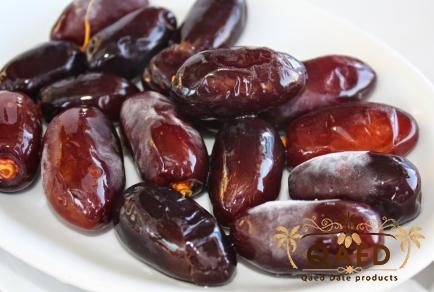
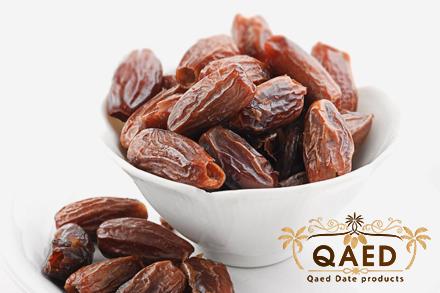


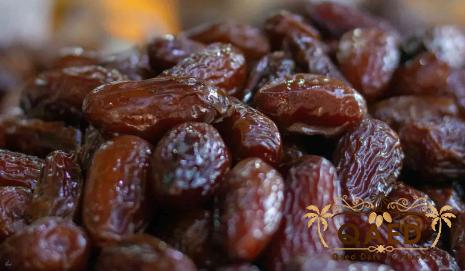


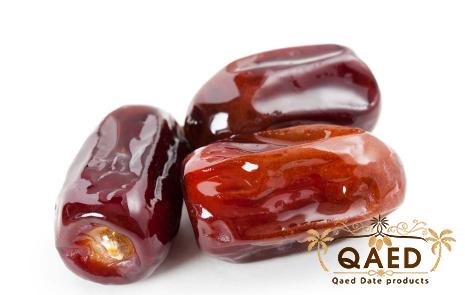


Your comment submitted.